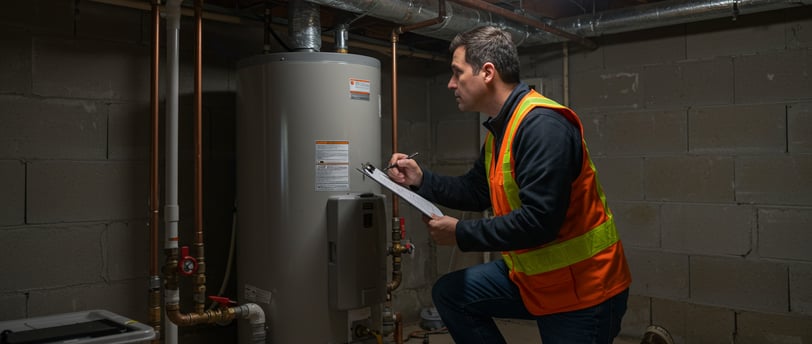Things to Check Before the Home Inspector Shows Up
Ensure a successful inspection with this essential checklist
HOME INSPECTIONDIY
2/13/20252 min temps de lecture


If you’re selling your home or getting ready for an official inspection, preparation is key. A smooth home inspection can help speed up the selling process and prevent any surprises. Here are the most important things to check before the home inspector arrives.
Check for Leaks
Inspect all faucets, under sinks, and around toilets for any leaks. Even small drips can raise red flags, and fixing them before the inspection can make a good impression.Test All Electrical Outlets and Switches
Go through each room and test the light switches and electrical outlets. If any are not working, it might indicate a wiring issue that could be flagged during the inspection.Inspect the HVAC System
Change the air filter and ensure the heating and cooling system is running properly. If your HVAC system hasn’t been serviced in a while, consider getting a professional tune-up before the inspection.Examine the Roof and Gutters
Look for missing or damaged shingles, sagging gutters, or signs of leaks. If the gutters are clogged, clean them out to prevent drainage issues from being noted.Make Sure All Doors and Windows Function Properly
Open and close all doors and windows to ensure they don’t stick or have broken locks. If any windows are painted shut or hard to open, this could be noted as a safety issue.Check the Water Heater
Ensure the water heater is in good working order and that there are no leaks or rust around it. If it’s older, have documentation ready about its maintenance history.Test Smoke and Carbon Monoxide Detectors
Replace any dead batteries and test each detector. These safety devices are often checked during an inspection, and non-working units may be flagged.Inspect the Basement and Crawl Spaces
Look for any signs of moisture, mold, or cracks in the foundation. If you notice any issues, addressing them ahead of time can prevent complications.Declutter and Provide Access to Key Areas
Make sure the inspector has easy access to the attic, basement, electrical panel, water heater, and HVAC system. If these areas are blocked, it could slow down the inspection process.
By taking care of these items ahead of time, you can help ensure a smooth inspection with fewer surprises. A well-prepared home not only makes a good impression but can also help speed up the sale process.
Quantum Scope Inspections
La Santé de Votre Maison, Notre Priorité Absolue
Obtenez le Manuel du vendeur de maison, édition 2025
Maximisez votre investissement avec des réparations et de l'entretien, sur Amazon
© QuantumScope Inspections 2025 | Tous droits réservés | Politique de Confidentialité
Conception du site web par Creative Web Design Lab
